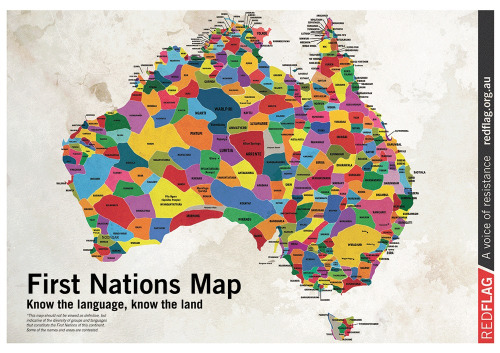Let’s Begin Again: Conversing Beyond the Gender War
I often think if I was to give Tim that ill-fated apple back in the garden of Eden, he’d very likely have refused it. Politely, of course.
This hypothesis has something to do with my husband’s resistance to peer pressure, the particular dynamics of our marriage relationship, and his general dislike of receiving food prepared by me. That might say a little too much, I’m not sure. But I’ve often thought that with one polite decline on that apple, things might have gone quite differently.
Although I laugh about it privately, the truth is, as a Christian, this joke masks a genuine underlying pain. Those who choose to worship the Christ (in the biblical text a gentle man funded mostly by women, who was willing to let a scorned prostitute wash his feet in public with her precious dowry) must, ironically, navigate a truly tangled mess of belief about women. The misguided Eve and the virginal Mary, the aggressive Deborah, and the deceptive Jezebel all remain living biblical archetypes ready to be designated upon women who dare accept leadership in the church.
For those of you who are not Christians, I should just say that the religion also provides a way through this maze. Christianity can be oppressive for women. But it can also be life-giving and sustaining for women. In other words, it’s complicated.
Rather than choosing to make Genesis a historical or scientific account of the beginning of the world, I’ve always found reading this biblical story most helpful in the genre it is written, as a narrative. Within it, I find solace. There is a famous saying probably by W. H. Auden that “a real book is not one that we read but one that reads us.” As I review the third chapter of the ancient Scriptures, I can’t help but acknowledge that it “reads” the state of things as they are today. There is an undeniable power struggle between men and women. (For what it’s worth, I also feel a very real “enmity” or active hostility towards Australian snakes, but that’s a less universally accepted biblical application).
I’ve written several online pieces throughout the years on theology and relationships across the gender divide, but only when I felt forced or compelled to do so.
A recent driver for me was writing something that may assist younger single women in thinking through their choice of spouse… You know, ideally, one that doesn’t kill them. Unfortunately, that’s a serious consideration for Australian women. Because although domestic violence is not limited to gender, one Australian woman a week is killed by her partner. It seems to make no difference to these statistics whether you are religious or not.
The online platform “Fixing Her Eyes” gave me space and the encouragement to write about the need for Christian marriage to be embedded in a community. I wrote this piece in desperate hopes of putting more content into Christian marriage than prevalent popular theology at the time, which just seemed to mandate “innie” and “outie” pink bits. To me, this seemed a terrible way of thinking through what a marriage was, or could be.
Then, I wrote about the four Christian THEOLOGIES of marriage. As in, I spoke out about the difference between Patriarchy, Complementarianism, Egalitarianism, and Deconstructionism. I hoped that this would help end the straw-man arguments that “complementarian” and “egalitarian” Christians commonly used against each other. There are better (or more progressive) ways to read things now. But at that time, it wasn’t even possible to speak explicitly about it. And I honestly think it helped a lot of women. At least, I got a lot of mail that suggested it did.
Of course, what I didn’t know at the time was that if you mention the gender wars online, you risk opening up the depths of the earth and releasing the trolls.
I was young, and it was 2016.
It’s not that I consider every man who responds or disagrees with me to be a troll. But I was having so many Facebook discussions online with men who all disagreed with me on various levels for so many reasons – and receiving hundreds of private messages of support from people who were telling me these interactions weren’t healthy. As in, these types of conversations would never occur in person or face-to-face.
When there is one person who disagrees with you over a beverage, that’s friendly banter.
When there is a woman with her back against the wall typing furiously to fend off hundreds of men who ALL disagree with her in friendly ways, well… that’s exhausting. And these individuals and their characteristics blur into a mass of online entities repeatedly clashing against each other, in a gendered shape.
Recently, after reading some of my Facebook threads, a friend of mine, Isaac Soon, sent me an article about “the reply guys.”
If we think about our online interaction as a ritual, then we can notice some patterns. And women who try to lead any public conversation find that there are some predictable responses from men, nine types of which you can read about in the reply guy thread.
As the author of the article notes, all nine share a common goal: to control the conversation.
Given the hundreds of dominating voices, there is also a predictable general silence from women. I found out that trouble only really came when I tried to redress any gender imbalance in the conversation. To allow women to share opinions on my wall (rather than only in private messages), I had to address the men who were acting as “the reply guys.” I had to turn down the power of one group to create the space for another less powerful group to speak. Which I did.
But after years of trying to encourage men while simultaneously asking them to respect the women on my threads, I realised I was incredibly tired.
I decided to “quit,” so to speak.
I wasn’t going to just respond nicely with facts when I replied in public. Instead, I was going to act my age and education level. In other words, I was going to speak the same way I believed men did. I was going to stop speaking women’s business language.
For those of us not clued in, this is the way women tend to speak when they are in meetings… like this:
“Look, I’m so sorry, Lauren here. I hate to butt in… I just think perhaps the last idea might take us off track from the goal we’re trying to achieve in coming together? I don’t know… what do you think about that, Dave*? Do you also have concerns? I mean, we can’t really predict the future, but maybe this is something we can think about as we consider the options at hand.”
Whereas Dave says:
“Yeah, it won’t work Scott.”
And inevitably, everyone walks out of the room thinking “Gee Dave is great. He really led that meeting.”
I wanted to play the role of Dave, not Lauren. So, I decided just to be the Dave I’ve always wanted to be. In many ways, it was great. I certainly felt better about myself and my interactions.
“You’re trolling me,” I told men.
“Stop that,” I instructed. “You’re only saying it to me because I’m a woman. If you respected me, you’d listen to what I just said.”
“No, I don’t need to answer that question,” I retorted. “That’s not the focus of my discussion today. Please read the post and respond accordingly.”
But speaking like a Dave actually opens up a whole new pattern, of men who want to be spoken to by a-Dave-who-is-a-woman.
It’s like there’s a whole new level of interaction with men who like “conversing rough.” Dominant talking results in a deep shame that is assumed by the person who has been publicly dressed down. And this I find sickening.
Additionally, some men will deliberately bite at a woman leading a discussion in order to be placed back into a type of pecking order. They will test the boundaries of the conversation to find out where they fit in it. And some of them are used to and even like the shame patterns that result from this behaviour.
I’ve realised that men become dominant talkers only because they have been talked to like this by other men. It starts with the hierarchies and patterns in the playground, which are created by fists, and then ricochets across the internet in continuing ways via words. So I’m calling a stop to it.
The easiest way would be to stop allowing all men I don’t actually know to join my social media platforms, and then drawing upon each personal relationship to moderate the conversation. Lord knows, my trust has been broken a million times.
But I’m not going to do that.
To those men with whom I have tousled, I’m sorry.
I’m going to try something else entirely, and I invite you to do the same. I’m going to do my best to live from the sustenance I find in this ancient Scripture (here in the very poetic Message paraphrase) of Lamentations:
God’s loyal love couldn’t have run out,
his merciful love couldn’t have dried up.
They’re created new every morning.
How great your faithfulness!
I’m sticking with God (I say it over and over).
He’s all I’ve got left.
Anyways I’ve decided that every single day I’m going just to reset the clock beginning with the great, Divine, Love.
I’m going to be straight-forward, but kind. As kind as possible.
I’m not going to take the rituals (whether bad or good) from yesterday’s conversations into today.
I run the risk, of course, of looking like Dory from Finding Nemo. Which is a possibility. And I hope that you will forgive me if I do.
But it’s time to try and begin again. Every single day we get the chance to rewrite the script that we use to talk across the gender divide.
And I hold hope that we can create a way forward together.
If I forget, please remind me.
We have to continue to help each other be human.
——
* The name Dave was chosen at random, but also kind of not, because Australian Research Council (ARC) grants are largely won by Daves. But who can blame the people? Daves are awesome.










